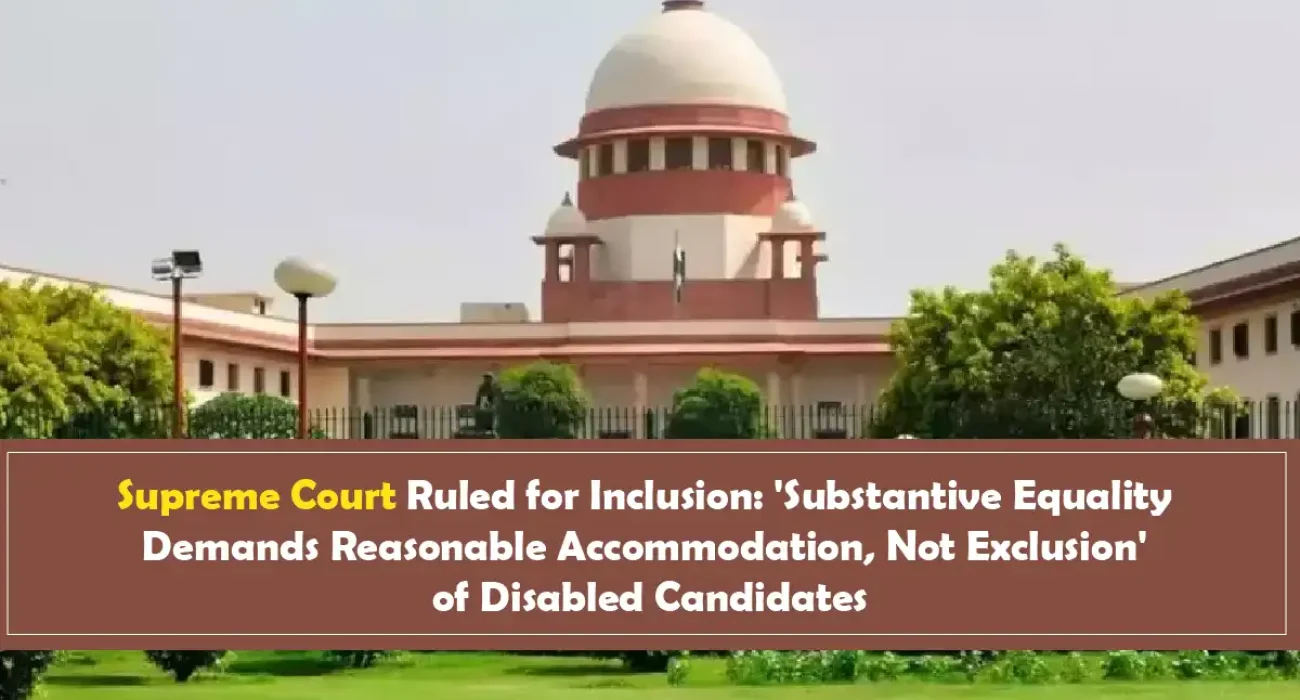

Table of Contents
ToggleThe petitioner, a Scheduled Caste (SC) candidate with a benchmark disability (congenital absence of multiple fingers in both hands and involvement of the left foot), appeared for NEET-UG 2024 and secured a PwBD category rank of 176. Despite his qualifications, he was denied admission to AIIMS, New Delhi, under the SC-PwBD quota based on assessments under the National Medical Commission (NMC) guidelines, which deemed him ineligible.
He initially approached the Delhi High Court, which, along with the Division Bench in a subsequent appeal, upheld his ineligibility based on reports from medical boards. Aggrieved, he approached the Supreme Court via a Special Leave Petition (SLP).
The petitioner argued that his denial of admission violated his fundamental rights under Articles 14 and 16. The assessments relied on by AIIMS and the NMC were arbitrary and failed to consider his actual functional capabilities.
A less meritorious candidate had been allotted a seat under the same SC-PwBD category at AIIMS, to which he had a better claim.
The AIIMS and NMC argued that the candidate did not meet the eligibility criteria as per the existing NMC guidelines, which required “both hands intact, with intact sensation and sufficient strength.” Previous medical assessments had found him ineligible for pursuing an MBBS course due to physical limitations.
However, during the Supreme Court hearing, ASG Archana Pathak Dave, appearing for the respondents, conceded that the petitioner had been successfully reassessed by a fresh medical board and affirmed that he could be admitted in the next academic session.
The bench comprising Justices Vikram Nath and Sandeep Mehta found the denial of admission to be unconstitutional and discriminatory. It emphasized that:
“The denial of admission to the appellant in the MBBS UG course was grossly illegal, arbitrary and violative of the appellant’s fundamental rights as guaranteed under Articles 14 and 16 of the Constitution.”
The Court noted that the candidate had demonstrated full functional ability in critical medical tasks such as chest compressions, intubation, and suturing. The only minor challenge he faced was putting on sterilized gloves, which could not be grounds for disqualification.
“We feel that the mindset must change and this trivial aberration, by no stretch of imagination, can be a ground to deny admission to the appellant in the MBBS UG course.”
The Court stressed that systemic and institutional discrimination must be rooted out “The constitutional mandate of substantive equality demands that persons with disabilities be afforded reasonable accommodations rather than subjected to exclusionary practices based on unfounded presumptions about their capabilities.”
“Reasonable accommodation is not a matter of charity but a fundamental right flowing from Articles 14, 16, and 21 of our Constitution.”
The Court directed that the petitioner be admitted to the MBBS UG course at AIIMS, New Delhi, for the 2025–26 academic session under the SC-PwBD quota. It ordered that he shall not be required to reappear for NEET-UG 2025.
The National Medical Commission was directed to revise its guidelines within two months to align with the Court’s judgments in Om Rathod v. DGHS and Anmol v. Union of India, ensuring no deserving PwBD candidate is denied admission in the future.
The Court concluded by expressing appreciation for counsels Rahul Bajaj and Amar Jain (both with visual disabilities), senior counsel Gaurav Agarwal (pro bono), and ASG Archana Dave for her pragmatic approach.
Credits: Adv. Deeksha Rai
IAW resources
Browse our help directory